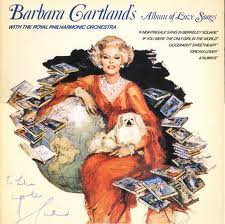Chekhov’s tale, The Lady with the Toy Dog, is a story of conflict, not of martial enterprise, but of consciousness and ego. The psychological dilemma is personified as an older man who meets and loves a younger woman, who then leaves him to love another and who ultimately returns to continue their assignation. These details are supplementary to the thread that Chekhov runs so blatantly through his story. Chekhov with his vivid imagery and austere text paints a picture of modern psychology that is more palatable than the cold, clinical dissection of Freudian theory. Rather than explicating the differences and boundaries of the psyche we’re offered a story that encapsulates the processes of the mind in a beautiful Russian doll, where as one doll is removed another is revealed.
Our protagonist is Dmitri, a man who despite his age and obligation continues to carouse and satiate his lust with random females. He’s indifferently married to a woman – his intellectual equal despite his thoughts to contrary – and for whom life offers no fresh adventure. Born of his affairs is a tangible misogyny. He regards women as mere play things and uses them to illuminate his otherwise dull life. In reality Chekhov describes a personification of Id; that which must be satiated immediately and which doesn’t care whom it hurts or what judgment is passed upon it as a result of its actions. Dmitri’s trips to the coast to meet women are really the pursuit of the pleasure principal, where the only thing that matters is instant gratification and brief respite from wife, societal norm and obligation.
Our other protagonist is Anna, a woman who sets out to satisfy the Id by seeking adventure away from her marital bed and who actively, if unconsciously, seeks an affair. The affair is consummated when she meets the irresistible Dmitri. Although indulging herself Anna eventually becomes distraught as her super-ego suddenly awakens to requite her for all she’s done. She considers herself to be a loose and low woman confronted with a diabolical situation where she’s been led unwittingly into temptation by the personification of everything she abhors in herself. We find our Russian lovers ensconced in a hotel, where Id munches on water melon whilst Super Ego berates itself and pulls out its hair for Anna’s illicit indulgence.
At the end of the short affair both have to part from one another, go their separate ways and return to their responsibilities. Despite the miles between them and the quotidian drudgery of life they’re eventually reunited, when once again their pleasure principal is awakened by an impromptu trip from Dmitri to Anna’s home town. Their feelings of love aren’t sudden but develop over time as lust morphs into love and our heroes’ Egos tries to present common sense solutions to the predicament in which they find themselves.
Dmitri wants to see Anna and Anna wants to see Dmitri but can’t because of professional and domestic constraints. A common way has to be found where both Id and Super Ego demands are satisfied. The solution, although not a satisfactory one, are stolen moments of happiness in a hotel where they’re able to meet infrequently. Despite their inner conflicts, balance has been found where they can both continue to see one another.
What Chekov has really shown us is the conflict between the Id, instinctual gratification, Super Ego, societal expectation and deference to conditioning and the final culmination of acquiescence to compromise via the Ego, self-preservation and yet balance.
Dmitri and Anna don’t live happily ever after, but they do continue to live.














Leave a comment